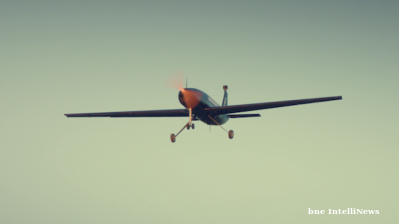Kosovo could introduce a 100% tax on products from Albania within two months if Tirana does not remove barriers to Kosovan exports of flour, beer and potatoes, an Albanian official revealed following failed trade talks between the neighbouring countries.
The plans were revealed on May 22 after trade representatives from Tirana and Pristina failed to agree on how problems related to the export of the three products could be solved.
If trade is not facilitated within two months and protection fees for beer, potatoes and flour from Kosovo are not lifted, tariffs will be raised for all Albanian products, the chairman of the Tirana Chamber of Commerce, Nikolin Jaka, told RTK after the talks.
The problem in trade relations arose after the authorities in Pristina removed all barriers for Albanian exports to Kosovo, but Albania’s authorities have not yet fulfilled their part of the agreement, according to Jaka.
The two countries have been seeking to create a common market in several areas, for example by uniting their electricity markets, building new road infrastructure and reducing mobile roaming tariffs. However, progress appears to have stalled on removing barriers to trade.
In a survey conducted by local think tank the GAP Institute among Kosovan businesspeople on the trade climate in the region, Albania was ranked second behind Serbia for the high trade barriers it applies to Kosovo. Trade barriers in Albania are considerably higher than those in fellow Balkan states Croatia, Montenegro and North Macedonia, found the report, based on data from Kosovo’s Ministry of Trade and Industry.
Kosovo imposed 100% tariffs for Serbian and Bosnian products in November 2018 for political reasons. According to GAP’s research the tariffs have not resulted — as forecast by local officials — in stimulating local production, but in a reorienting of the country’s main sources of imports.
Imports of goods from Slovenia, Israel and Turkey in particular have increased. Meanwhile, according to GAP, there are suspicions that products without visible labelling are being registered and imported through other countries of the region, such as Bulgaria, Croatia, North Macedonia and Albania.
News

US strikes on drug vessels kill 14 in deadliest day of Trump's narcotics campaign
The US military killed 14 people in strikes on four vessels allegedly transporting narcotics in the eastern Pacific Ocean, marking the deadliest single day since President Donald Trump began his controversial campaign against drug trafficking.

Russia withdraws from Cold War plutonium disposal pact with US
Russian President Vladimir Putin has formally withdrawn from a key arms control agreement with the United States governing the disposal of weapons-grade plutonium, as the few remaining nuclear security accords between the two powers vanish.

Nigeria’s NUPRC holds exploratory talks with Bank of America on upstream financing
Nigeria's upstream regulator, NUPRC, has held exploratory talks with Bank of America as the country looks to attract new capital and revive crude output, after falling short of its OPEC+ quota.

European diplomacy should have stopped war, Orban tells Italian broadcaster
The job of European diplomacy would have been stopping the war in Ukraine, but Brussels has become "irrelevant" by deciding not to negotiate, Prime Minister Viktor Orban told an Italian TV channel on October 28.

_Cropped.jpg)


